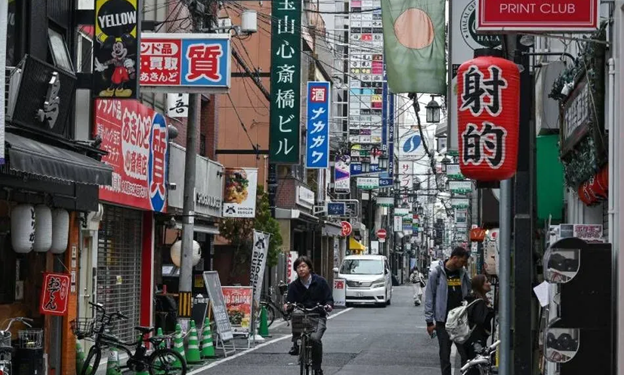MAGA-style ‘anti-globalist’ politics arrives in Japan

By Agence France-Presse
TOKYO, Japan — Populist ideals are gaining traction in Japan, spurred by right-wing politicians running rampant elsewhere railing against “elitism”, “globalism” and immigration.
While Prime Minister Shigeru Ishiba’s coalition lost its upper house majority in an election on Sunday, the “Japanese first” Sanseito party, created only five years ago, increased its seats from two to 15.
Sanseito’s agenda comes straight from the copybook of right-wing movements such as US President Donald Trump’s “Make America Great Again”, the Alternative for Germany (AfD) and Nigel Farage’s Reform party in Britain.
This includes “stricter rules and limits” on immigration and foreign capital, opposition to “globalism” and “radical” gender policies, and a rethink on decarbonization, vaccines and pesticide-free agriculture.
Founded on YouTube, Sanseito will “bring power back to the people”, party leader Sohei Kamiya, a 47-year-old former teacher and supermarket manager, wrote in the Japan Times.
Surveys have put immigration far down the list of voters’ concerns, who are much more worried about inflation and the economy.
But for Sanseito, the influx of newcomers into Japan—where the immigration its economy badly needs is far lower than in other developed countries—is to blame for a host of ills from crime to rising property prices to dangerous driving.
“It’s fine if they visit as tourists, but if you take in more and more foreigners, saying they’re cheap labor, then Japanese people’s wages won’t rise,” Kamiya said at a campaign.
But he added: “We are not exclusionary. We have never called to drive out foreigners.”
Meanwhile online platforms have been flooded with disinformation, some of which Japanese fact-checking groups and the government have debunked.
Some posts falsely claimed that foreigners leave almost $3 billion of medical bills unpaid a year, or that Chinese residents on welfare doubled in five years.
At a Sanseito election rally in front of Tokyo’s Shinagawa station, where orange T-shirted party workers handed out “Stop destroying Japan!” flyers, one voter told AFP she was finally being heard.
“They put into words what I had been thinking about but couldn’t put into words for many years,” said the 44-year-old IT worker on a precarious short-term contract.
“When foreigners go to university, the Japanese government provides subsidies to them, but when we were going to university, everyone had huge debts.”
Russian bot accounts have been responsible for “large-scale information manipulation”, according to a much-read blog post by Ichiro Yamamoto from the Japan Institute of Law and Information Systems think-tank.
This has been helped by artificial intelligence enabling better translation of material into Japanese.
More understanding towards Russia—something which was long anathema for Japanese right-wingers—is also a theme for Kamiya.
“Russia’s military invasion (of Ukraine) was of course bad, but there are forces in the United States that drove Russia into doing that,” Kamiya told AFP, denying he is “pro-Russia”.
He was forced during his campaign to deny receiving support from Moscow— which has been accused of backing similar parties in other countries—after a Sanseito candidate was interviewed by Russian state media.
As in other countries, the rise of Sanseito and its success has prompted the government to announce new immigration policies, and other parties to make promises during the election campaign.
Ishiba’s LDP proclaimed the goal of achieving “zero illegal foreign nationals” and said the government will strengthen the management system for immigration and residency status.
Eight NGOs issued a joint statement last week, since backed by over 1,000 groups, raising the alarm on “rapidly spreading xenophobia”.
“The argument that ‘foreigners are prioritized’ is totally unfounded demagoguery,” the statement said.
Hidehiro Yamamoto, politics and sociology professor at the University of Tsukuba, said that populism has not caught hold before because the LDP, unlike established parties elsewhere, has remained a “catch-all party”.
“The LDP has taken care of lower middle-class residents in cities, farmers in the countryside, and small- and mid-sized companies,” Yamamoto said.
And pointing to the rise and decline of other new parties in Japan in the past, he isn’t sure Sanseito will last.
“You can’t continue gaining support only with a temporary mood among the public,” Yamamoto said. Agence France-Presse






